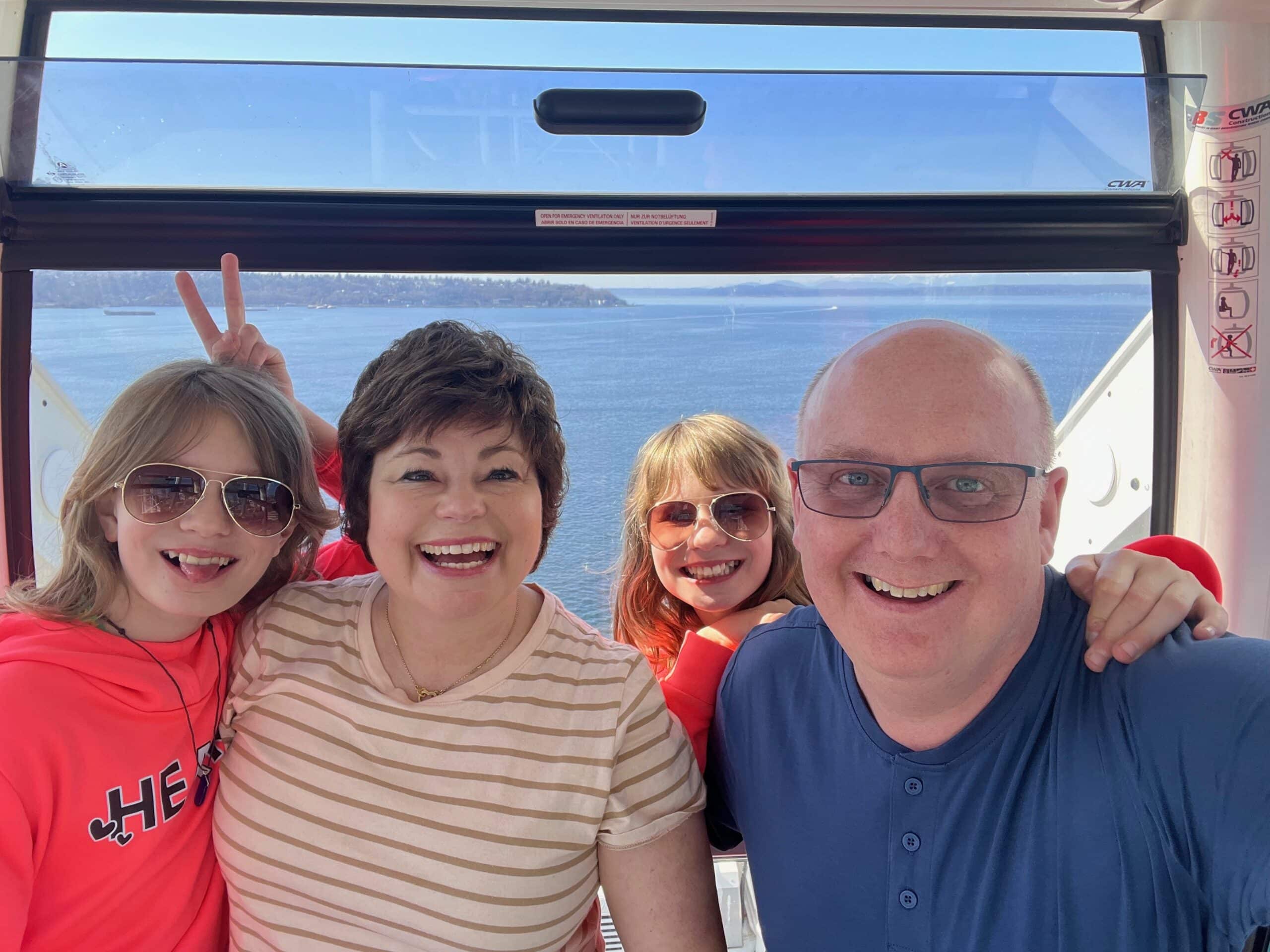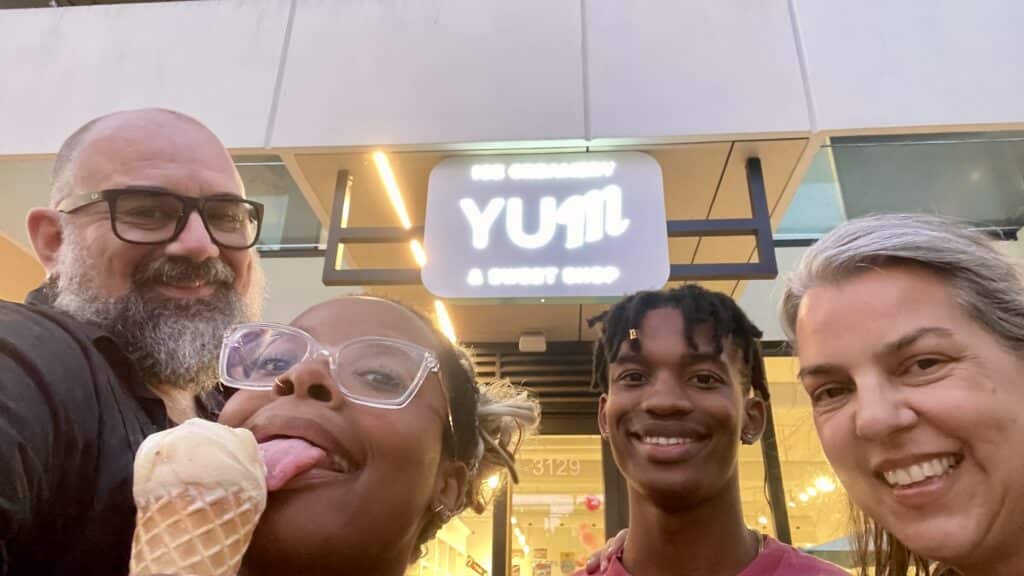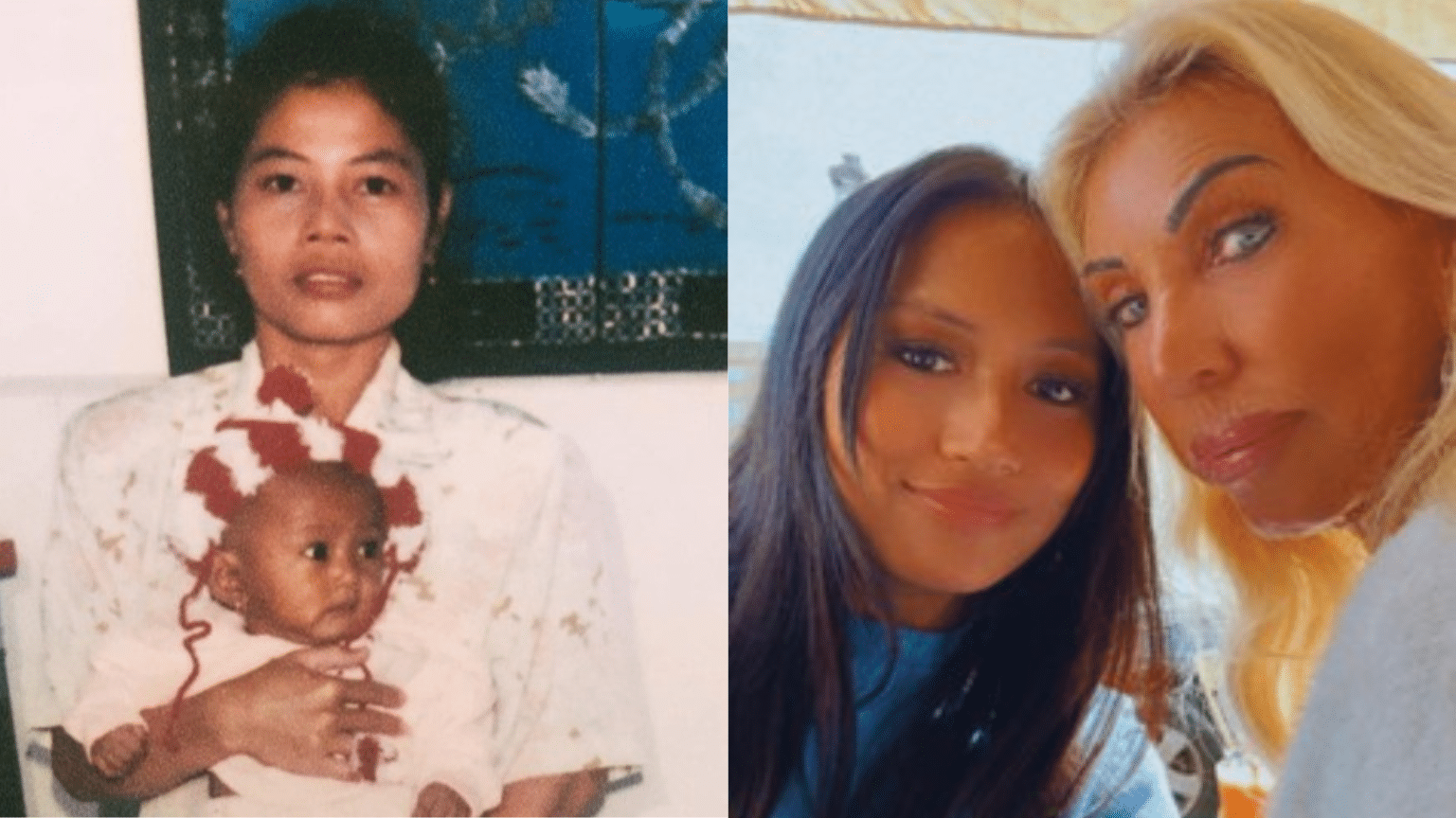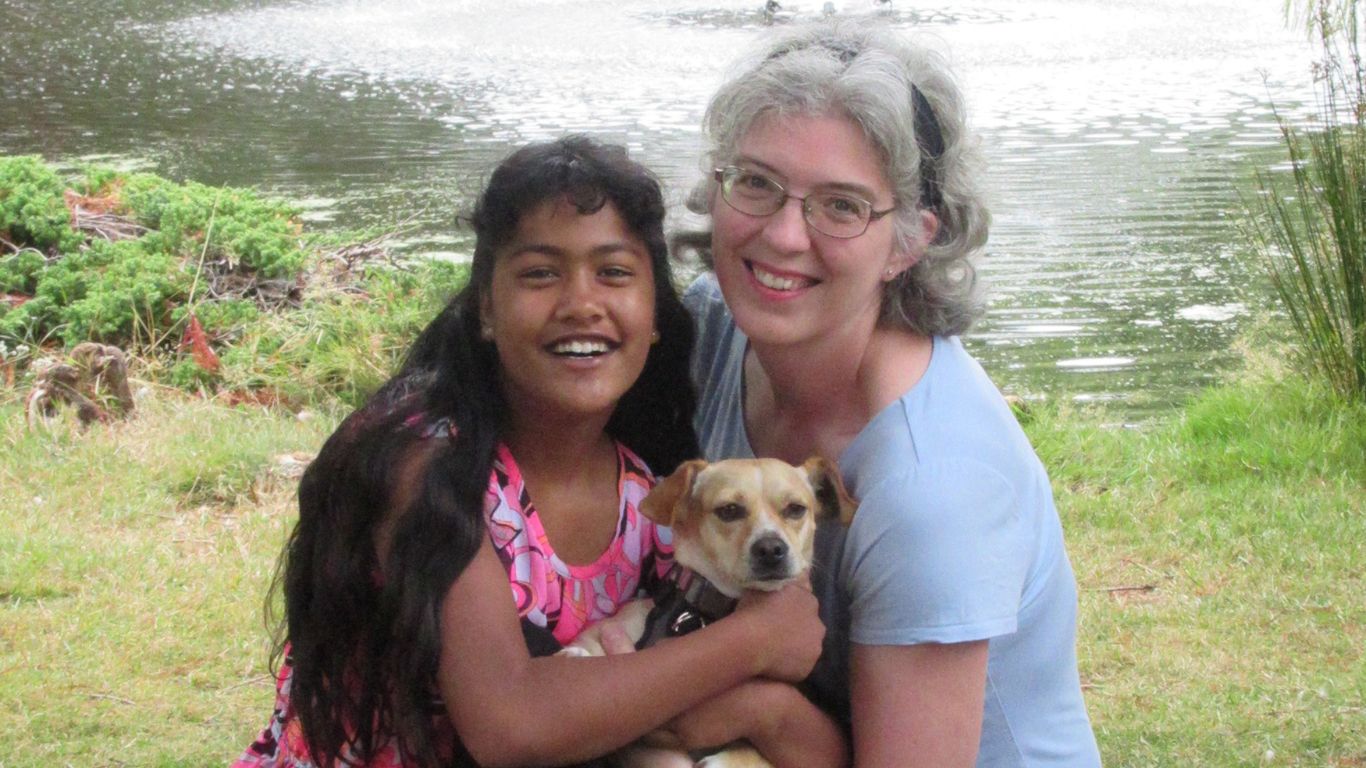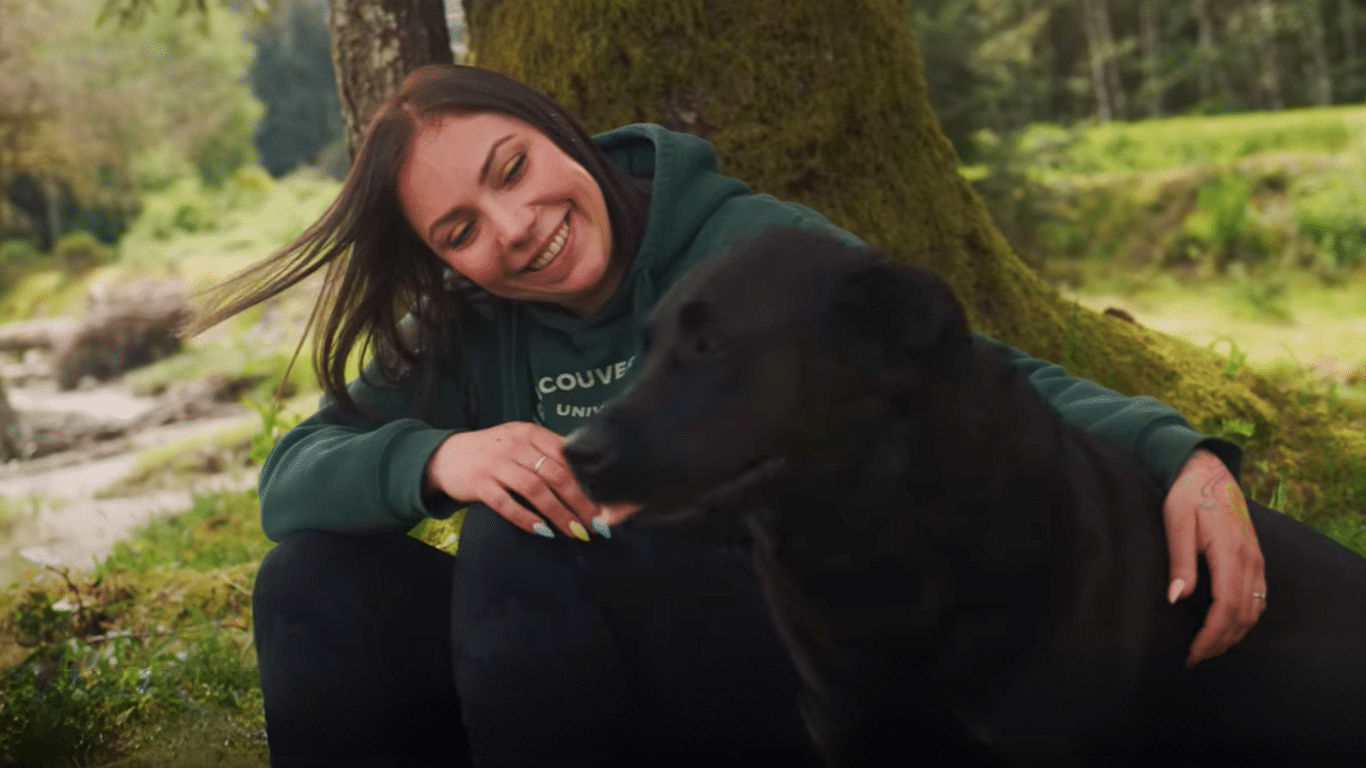Introducing the Hogan family. After emigrating to Canada, Terry and Paula turned to adoption to start their family together. Their twin daughters have taught them the importance of embracing differences and appreciating the little things. As long-time members of the Belonging Network community, their experiences are a testament to the value of connections and support.
Tell us a little bit about your family and your adoption story! What made you decide that adoption was right for you?
We both emigrated to Canada in 1995 and got married in 2000. We tried to have a family and weren’t successful, so we looked at the adoption process.
Adoption is a journey for everybody. For us, we wanted a family, and we realized there are many ways to make one. When we were first starting our journey and gathering information on what avenues were available, we knew there were children who needed a loving home in Canada, so that was our thought process.
We then started going through the education and did some classes. When we were first looking, we weren’t specifically looking with the ministry [the Ministry of Children and Family Development, or MCFD, manages adoption from foster care in BC]. Our first introduction was through Family Services of Greater Vancouver, where someone from MCFD came to present a workshop. It just opened up that particular avenue for us.
We began doing our home study and paperwork and went to a few different matching events. We went to one, an all-day event, that was basically a networking event where prospective parents and social workers met together. Shortly after that, MCFD reached out to us. One of the social workers thought we would be interested in some twin girls they were looking for a placement for. This was after abut 18 months of waiting.
What Belonging Network services & programming have you or your family utilized (now or in the past)? Which have been the most helpful?
With Belonging Network, we went to the camp at Timberline, which was a great experience for the girls. It was a weekend event, and it was so well done. It allowed families to bond and network, and the kids had so much freedom to play that they loved it. There were so many different families there, and they all had so much openness and willingness to share their stories.
Because of our girls’ special needs, they have some friends, but their circle of friends is quite small. For them to be able to go somewhere where they can make friends and be out in the open was a wonderful opportunity for them. With one of our children, since she came back from camp, it’s given her a massive confidence boost to be so much more independent, and it’s changed her in all sorts of countless tiny ways.
We’ve managed to get them to a different camp this year, which was an amazing experience for them. They know what camps are like and how much fun they’re going to have, so that experience definitely helped for the future as well.
How has the Belonging Network made a difference to your family?
We’ve been able to join different groups with other parents, which prevents isolation when you’re going through the process. The other piece is when you’re meeting other families, you’re forming connections, but you get valuable information on navigating and supporting your child in the best possible way. As much as the education programs are fantastic and necessary, we’ve found talking to other families and learning about their experiences has been so valuable.
Aside from the adoption aspect, special needs support has been a more significant component of our lives. Accessing services and having a network of people has helped. There used to be a playgroup, and we’ve met so many adoptive families. The girls have a good friend from the group they see regularly, and we go camping with them as well.
What has been the most rewarding/challenging thing about the adoption process?
It is rewarding to see them grow up and watch their development bring out their little characteristics and personalities. I think with all families, there can be moments where you question how things are working when kids are being challenging or whenever they’re upset or frustrated. However, when they smile and crack a joke or little things like that, your heart melts. There are so many little milestones that we celebrate together.
The challenges for us have been more with the special needs piece. The first six to eight months were the hardest. They were so little; they were only two at the time and were adjusting to new people and a new life, so things were hard. As they mature, their frustrations become a bit more challenging as well, such as helping them understand why their bodies are changing, and we know there are more challenges ahead of us.
I think adoptive parents, by nature, are good at planning ahead and having backup plans set in place. Sometimes we have a plan, and sometimes it goes sideways, but that’s normal. As easy as it is to get upset, you have to understand from their perspective that this is harder for them. Every family deals with different things, and we just have to deal with some emotional behaviours that get a bit more challenging.
Has your experience with adoption influenced you in any unexpected ways?
We also find ourselves educating other people at times. For instance, Paula’s parents also went through a big learning curve with the adoption. It has given us an opportunity to have more conversations, not necessarily always surrounding adoption, but more special needs conversations for sure. Some people from older generations have this mindset of “well, we never had anything like that in our day.” This gives us the chance to explain that yes you did, but special needs were often either undiagnosed or misdiagnosed.
What is one bit of advice you would share to those who are considering adoption or just starting their journey, or just for any parents in general?
One of the biggest pieces we can give is to embrace differences. Open up, and don’t be afraid to challenge yourself or your kid. Encourage them to try new things, and if it doesn’t work out, you can always move on to something different. We keep trying various activities for the girls, and they’ve started speed skating, and they love it. The way R explained it to us is that she just wants to go fast. So, let them experience their activities how they want to, even if that might look different from what your expectation was. We’ve learned that embracing your child for who they are and what they’re capable of doing is what’s best.

